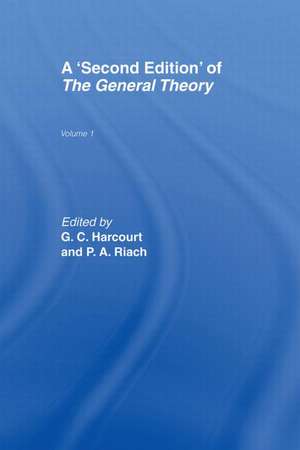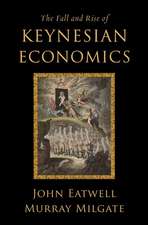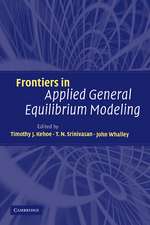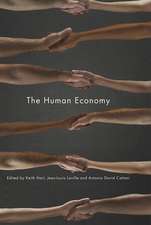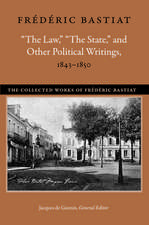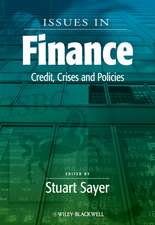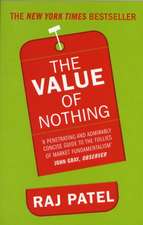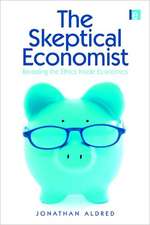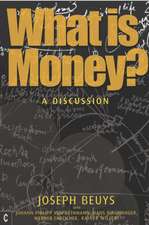The General Theory: Volume 1
Editat de Professor Geoffrey Harcourt, Peter Riachen Limba Engleză Paperback – 6 apr 2006
| Toate formatele și edițiile | Preț | Express |
|---|---|---|
| Paperback (1) | 508.54 lei 6-8 săpt. | |
| Taylor & Francis – 6 apr 2006 | 508.54 lei 6-8 săpt. | |
| Hardback (1) | 1022.48 lei 6-8 săpt. | |
| Taylor & Francis – 2 ian 1997 | 1022.48 lei 6-8 săpt. |
Preț: 508.54 lei
Nou
Puncte Express: 763
Preț estimativ în valută:
97.32€ • 101.23$ • 80.34£
97.32€ • 101.23$ • 80.34£
Carte tipărită la comandă
Livrare economică 14-28 aprilie
Preluare comenzi: 021 569.72.76
Specificații
ISBN-13: 9780415406994
ISBN-10: 0415406994
Pagini: 560
Dimensiuni: 156 x 234 x 29 mm
Greutate: 0.91 kg
Ediția:Revised edition
Editura: Taylor & Francis
Colecția Routledge
Locul publicării:Oxford, United Kingdom
ISBN-10: 0415406994
Pagini: 560
Dimensiuni: 156 x 234 x 29 mm
Greutate: 0.91 kg
Ediția:Revised edition
Editura: Taylor & Francis
Colecția Routledge
Locul publicării:Oxford, United Kingdom
Public țintă
Postgraduate and UndergraduateRecenzii
'These volumes will be appreciated by Keynes scholars, old and new, for the light they tend to shine on their subject...this 'second edition' of the General Theory will assist in ensuring that the thought of the greatest economist of the twentieth century, for that is what Keynes undoubtedly was, will continue to reverberate in the minds of economists as we enter the twenty-first century. - History of Economics Review
Notă biografică
Professor Geoffrey Harcourt, Peter Riach
Cuprins
I: Introduction; 1: The Relation of The General Theory to the Classical Theory; 2: On Rewriting Chapter 2 of The General Theory; 3: Effective Demand Revisited; 4: Yes, Mrs Robinson!; 5: Imperfect Competition and Keynes; 6: The Principle of Effective Demand *; II: Definitions and Units; 7: Units and Definitions *; 8: User Cost *; III: The Propensity to Consume; 9: The Propensity to Consume and the Multiplier *; 10: Keynes and Dynamics; 11: The Multiplier and Finance *; IV: The Inducement to Invest; 12: The Marginal Efficiency of Capital and Investment; 13: The Marginal Efficiency of Investment *; 14: Is There a Place for Rational Expectations in Keynes's General Theory? *; 15: Expectations and Uncertainty in Contemporary Keynesian Models *; 16: The Theory of Value, Expectations and Chapter 17 of The General Theory *; 17: Own-Rates of Interest and their Relevance for the Existence of Underemployment Equilibrium Positions *; 18: Keynes's Monetary Theory of Value and Modern Banking *; 19: The General Theory; 20: The Classical Theory of the Rate of Interest; V and VI: Money-Wages and Prices: Short Notes Suggested by the General Theory; 21: Keynesian Business Cycle Theory; 22: Notes on the Trade Cycle and Social Philosophy in a Post-Keynesian World *; 23: Underconsumption; 24: Keynes's ‘Concluding Notes'
Descriere
Here a wide range of Keynes scholars - including James Tobin, Paul Skidelsky - clarify difficult passages and revise The General Theory in light of Keynes' later work and ideas.
